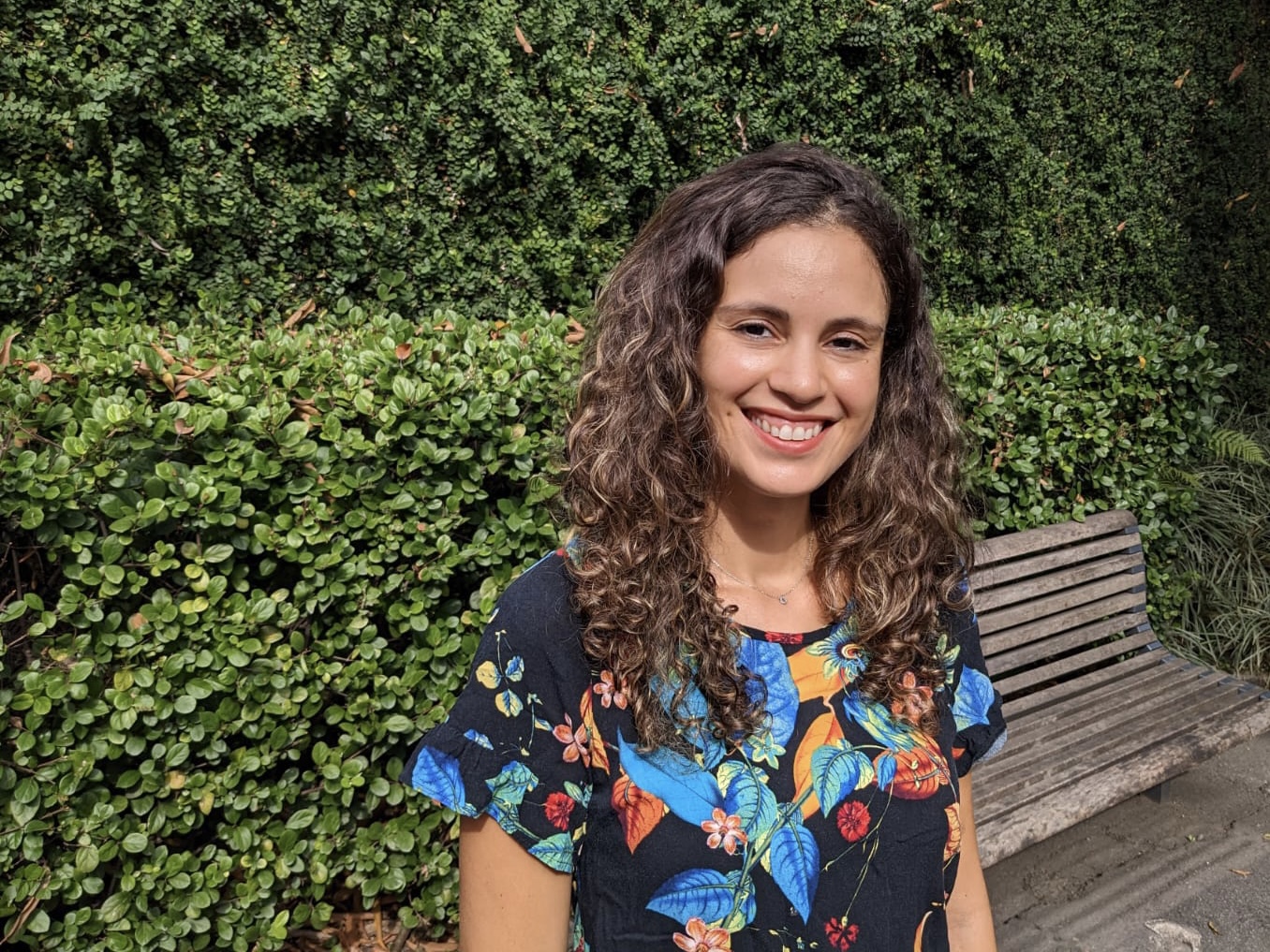Born in Goiânia, Brazil • Birth year 1986 • Studied Mathematics at Instituto Superior Técnico, Universidade de Lisboa, Portugal • Highest degree PhD in Mathematics • Lives in Rio de Janeiro, Brazil • Occupation Assistant Professor at Universidade Federal do Rio de Janeiro
Through all my school years I have always felt that the more logical reasoning the subject involved, the more attention it would capture from me. I remember being the one helping out my colleagues preparing for math exams and being supported by others with the subjects of social studies. Although as a child I enjoyed very much pretending I was a teacher, assigning the seats to the dolls, I grew up hearing that it was an underappreciated profession in my country, with which people usually feel overworked and underpaid. Even after finishing high school I was very resistant to choose mathematics and teaching as a career, but I finally decided not to walk away from my dream role. The only (probably naive) argument for that was that I have always enjoyed studying mathematics.
While adjusting myself to the new life in a very large city and struggling with the exams, this period was one of the toughest in my academic career but also the first step towards professional maturity in research/academia.
Only when I got to the university for my bachelor in mathematics, I realized that I could perform poorly in a math exam, which was unfamiliar to me. I accepted the challenge and worked hard to finally achieve good results, especially in the more abstract courses. Algebra was particularly demanding, with a very tough and inspiring female professor. She often provided us with a lot of extra reading materials and required us to attend extra lectures, jointly with her graduate students. But since she was always willing to provide us with assistance, I felt very challenged and also wanted to get along with her. That pushed me to put a lot more effort into my studies. As a result, I decided to pursue a Master’s degree in a different city, at one of the best universities in the country. While adjusting myself to the new life in a very large city and struggling with the exams, this period was one of the toughest in my academic career but also the first step towards professional maturity in research/academia.
The math-life balance also comes as a challenge, while trying to fulfill the pressure to be productive and achieve personal goals outside work at the same time.
My years of PhD and postdoctoral studies were used as an opportunity to perform my research under different scientific atmospheres, in some different centers in Brazil and abroad. The interaction with different research members and visiting fellows provided me with an enriching scientific experience, giving me the opportunity to engage in collaborations within my field of research. As luck would have it, I ended up having a very kind and talented professor working in nonlinear dynamical systems as my PhD supervisor. That period was, however, one of the hardest and exhausting periods of my academic life. Not only for the strong gender imbalance in mathematics but also for recurrently having no sense of belonging. The hard side of leaving the comfort zone, especially coming from humble backgrounds, is the general feeling that you are not as capable as your peers. At that point, one is also confronted with the fact that besides the technical scientific abilities, it is also necessary to manage other required skills of your career. Critical thinking, presentation and communication abilities, self-discipline, leadership and advising skills, among others, also came in handy. The math-life balance also comes as a challenge, while trying to fulfill the pressure to be productive and achieve personal goals outside work at the same time. All of that requires time, maturity and, more importantly, a great support in order to overcome the challenge.
In this journey, I realized that besides the urgency of creating an equitable world in the near future, where underrepresented groups don’t have to deal with biases in and outside the workplace, it is also crucial to find a stimulating and safe environment to work in. To do so, it is very important to be surrounded by like-minded peers and colleagues you can trust to talk about the work and insecurities inside academia. Taking advantage of all professional and personal opportunities and resources is also essential.



Recent Comments